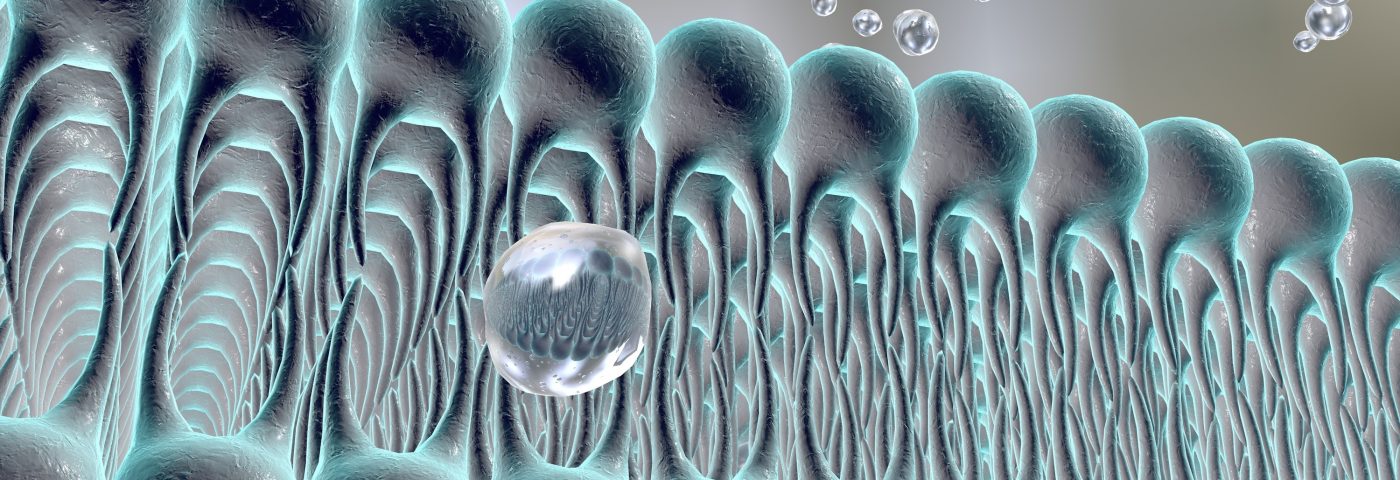Researchers have found that a protein, named Aquaporin 1 (AQP1), is a valuable biomarker in malignant mesothelioma patients. The study, “Usefulness of Aquaporin 1 as a Prognostic Marker in a Prospective Cohort of Malignant Mesotheliomas,” was published in the International Journal of Molecular Sciences.
Researchers evaluated if AQP1 could act as an independent prognostic factor in two separate cohorts of malignant mesothelioma patients.AQP1 is a widely expressed water channel that allows water to easily pass through the plasma membranes of red blood cells and kidney proximal tubules. Besides their role in water transport, aquaporin proteins also play a role in cell proliferation and pain perception. Expressed in tumor cells as well, aquaporins have been used in cancer prognosis, and they have been recently investigated as potential targets for cancer therapy.
The team found that some malignant mesotheliomas had an increased expression of AQP1, and assessed its value as a prognostic marker. Tissue samples from 104 consecutive cases of malignant mesothelioma were extracted and evaluated for the expression of AQP1. Two pathologists then analyzed the expression of the protein in the tissue, and the findings were correlated with the complete clinical information and follow-up. In total, samples from 91 cases were included in this analysis.
Researchers observed that AQP1 was maintained as a significant indicator of prognosis, but only in an univariate analysis (i.e., when only one variable is considered). The significant prognostic value of AQP1 was diminished in multivariate analysis (with several variables). These findings, authors noted, were in agreement with their previous results showing that AQP1 varies between different histological subtypes of MM.
Researchers concluded that AQP1 is a useful prognostic marker, with higher levels of AQP1 showing a better prognosis in malignant mesothelioma. AQP1, they suggest, is useful as a tool and can be easily incorporated in existing diagnostic tests that use tissue staining and are analyzed by pathologists.


